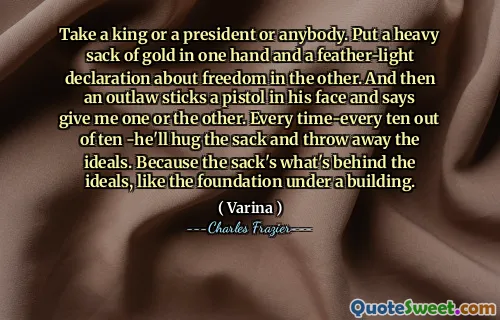The father let his rifle down and stood its butt against the porch boards. The boy, though, kept alert. There was a good deal of killer about him, and it was why he still lived. The last four years had made a whole generation of young boys -- who ought to have been going to school and learning a trade and thrilling deep in their bones just to dance with a girl and peck her on the cheek -- into slit-eyed killers with no more tell of emotion than an old riverboat faro gambler.
In the narrative, a father lowers his rifle, signaling a moment of temporary peace, while his son remains on high alert. This vigilance stems from their harsh reality, which has forced young boys into survival mode, developing a hardened demeanor. The boy is characterized by a certain intensity and toughness, traits necessary for living in a perilous environment. His existence contrasts sharply with the innocence typically associated with childhood.
The mother's reflection highlights the tragic loss of youthful innocence caused by years of conflict. Instead of enjoying carefree childhood experiences, like schooling and innocent romantic interactions, these boys have evolved into emotionally detached figures, much like seasoned gamblers who are unyielding and stoic. Their formative years, which should have been filled with discovery and joy, have been replaced by a grim struggle for survival, altering their very nature.
